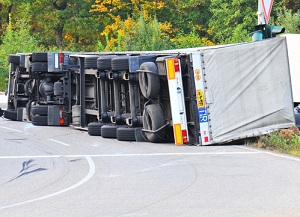Post-Accident Alcohol and Drug Testing: Overview
Post-accident testing is a critical part of any investigation into a wreck involving a commercial motor vehicle. Despite the specific rules regarding when a test is required, it is not at all uncommon for a motor carrier to fail to perform a post-accident test. Under certain clearly-defined circumstances, an employer of a CMV driver must ensure an alcohol and drug test is administered to a driver (or drivers) within a prescribed period of time following an accident. While the regulations state when the testing must occur, they do not prohibit an employer from conducting post-accident testing even when it is not otherwise required. The regulations also provide instructions regarding post-accident alcohol (but not controlled substance) use by a driver.
Post-Accident Testing:
Post-accident drug and alcohol testing is governed by sections 382.209, entitled “Use following an accident,” and 382.303, entitled “Post-accident testing.” Combined, these two regulations provide for the following.
1. “As soon as practicable following an occurrence involving a commercial motor vehicle operating on a public road in commerce,” a motor carrier must test for alcohol in “each of its surviving drivers” where the occurrence involves:
a. a fatality, or;
b. where a traffic citation is issued and either:
b.i. bodily injury requiring treatment away from the scene occurred, or;
b.ii. a vehicle (not just the CMV) had to be towed from the scene;
2. The duty to conduct alcohol testing after an accident continues for eight hours afterwards, so that a citation issued seven hours and thirty minutes after an accident may trigger the duty to conduct an alcohol test;
3. Like alcohol, controlled substance testing is required “as soon as practicable” after an accident, under the same circumstances described above, for any “surviving drivers;”
4. The duty to conduct a post-accident drug screen extends for thirty-two hours following the accident and may be triggered by a citation issued at such a late time;
5. If an alcohol test is triggered but not administered within two hours, the motor carrier is required to document the reason why the test was not performed. Further, if a test was triggered but was not performed within eight hours, the motor carrier shall “cease efforts” to perform the test and prepare a record explaining why the testing was not done;
6. If a controlled substance test is triggered but not administered within thirty-two hours, the motor carrier shall “cease efforts” to test and prepare a record explaining why no testing was performed;
7. The motor carrier must provide its drivers with appropriate instructions and information so that they will be able to comply with post-accident testing regulations;
 8. If federal, state or local authorities conduct blood, breath, or urine testing, this may suffice to replace a drug or alcohol test that the motor carrier is otherwise required to ensure is administered. However, the motor carrier may only invoke this exception where it obtains the results from the authorities;
8. If federal, state or local authorities conduct blood, breath, or urine testing, this may suffice to replace a drug or alcohol test that the motor carrier is otherwise required to ensure is administered. However, the motor carrier may only invoke this exception where it obtains the results from the authorities;
9. No post-accident testing is required where the accident occurs because of or during cargo loading or unloading, boarding or alighting from a stationary vehicle, or the use of a passenger car or certain types of vans, unless the vehicle is transporting either passengers for hire or certain hazardous materials;
10. No driver who is required to take a post-accident alcohol test by the Regulations may use alcohol for eight hours after the accident or until a post-accident test is administered, whichever is first. This rule would not render meaningless an employer’s own policy of testing drivers even when the regulations do not require it.
 Georgia Injury Lawyers Blog
Georgia Injury Lawyers Blog

